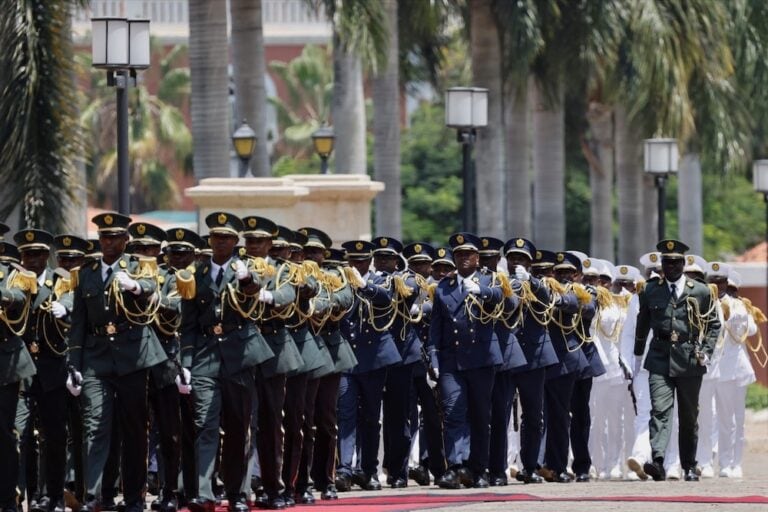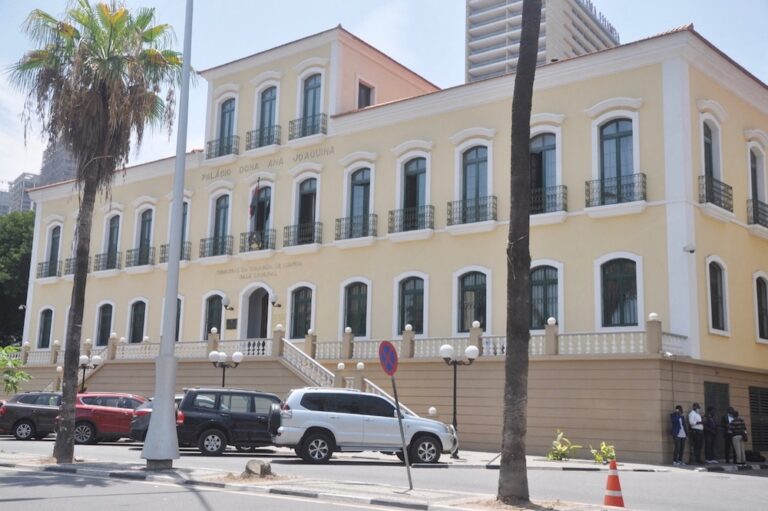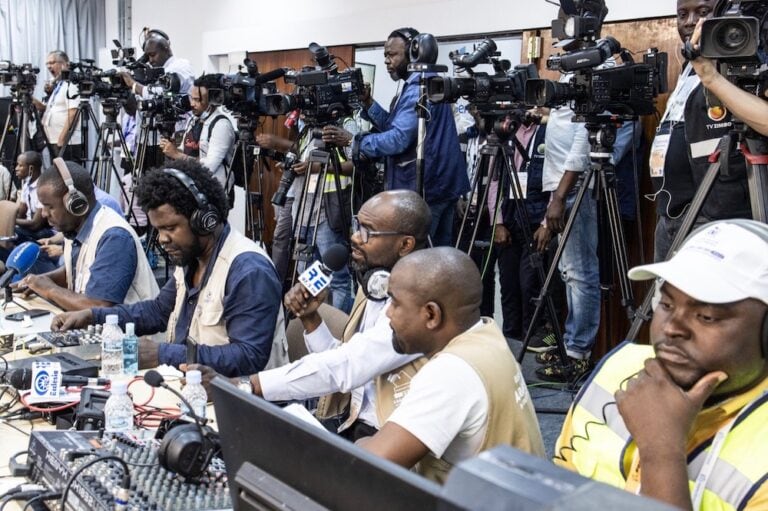Since January, authorities have banned and cracked down on five anti-government rallies and arrested at least 46 protesters, 11 of whom courts sentenced to prison terms of up to 90 days. The increasing violence and threats raise concerns about 2012 elections.
(Human Rights Watch/IFEX) – Johannesburg, April 2, 2012 – The Angolan government should immediately end its use of unnecessary force against peaceful anti-government protesters, human rights activists, journalists, and opposition politicians, Human Rights Watch said today. Ensuring that people can exercise their basic rights to freedom of association, expression, and peaceful assembly, and prosecuting those who violate those rights, is crucial for creating a peaceful environment for parliamentary elections slated for later in 2012, Human Rights Watch said. On April 4, Angola will celebrate 10 years of peace since the end of the decades-long civil war.
Since January 2012, Angolan authorities have banned and cracked down on five anti-government rallies and arrested at least 46 protesters, 11 of whom courts sentenced to prison terms of up to 90 days. This appears to be an attempt by the government to curb an incipient protest movement promoted by youth groups and others since March 2011, Human Rights Watch said. Human Rights Watch also expressed concern that state media appear to be promoting anonymous groups that incite violence against anti-government protesters.
“The increasing violence against protesters, observers, and opposition politicians signals a deteriorating rights environment ahead of the upcoming parliamentary elections,” said Leslie Lefkow, deputy Africa director at Human Rights Watch. “The Angolan government should take urgent steps to end this crackdown on peaceful protest and activism.”
Uniformed police, in apparent coordination with armed police in civilian clothes and other security agents, violently attacked anti-government protesters in the capital, Luanda, on January 27, February 3, and March 10. In Benguela, on March 10, police arbitrarily arrested a demonstration leader, a human rights activist, and a bystander, and on March 17 police prevented a further protest from taking place. In Cabinda, on February 4, police violently attacked striking health workers.
Uniformed and plainclothes police and people believed to be allied to the government have acted with increasing violence and total impunity during peaceful protests, Human Rights Watch said. The police have not intervened to protect peaceful demonstrators and opposition politicians who were being violently attacked by armed individuals, seemingly acting in coordination with and under the protection of the police.
Interior Minister Sebastião Martins recently denied any police involvement in the violence. The evening after the March 10 crackdown, state television aired threats by anonymous groups that claimed they were defending the peace against anti-government protesters.
Investigations announced by the authorities into the violence have not resulted in prosecutions of attackers identified by demonstrators and eyewitnesses. And new politically motivated assaults, threats and harassment against protesters and observers have been reported.


